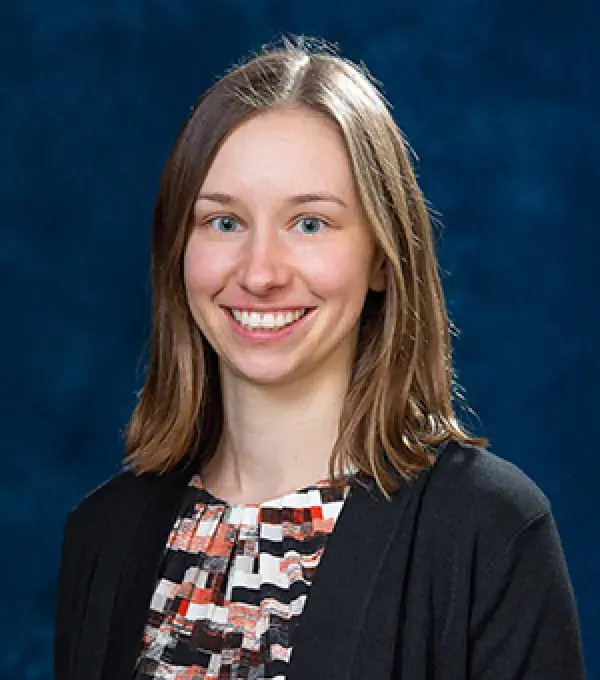
Rosalind Lauren Heckman, PT, DPT, PhD
Assistant Professor
Biomedical Sciences

Contact
School of Pharmacy and Health Professions
Physical Therapy
Physical Therapy Faculty
Graduate School
Neuroscience (Master of Science)
Faculty - Pharmacy, OT, PT
Rehabilitation Science Research Laboratory
Doctor of Physical Therapy - Omaha
CRISS III - Criss 3 - 119-B
Rosalind Lauren Heckman, PT, DPT, PhD
Assistant Professor
Biomedical Sciences
Research Focus
My long-term objective is to improve the preparation and performance of whole-body movements in individuals impacted by neurological injury, disease or typical aging processes.In my laboratory, we use a startling acoustic stimulus to trigger the release of a prepared motor plan. The use of startle to trigger a prepared movement allows us to study motor preparation independent from the other phases of movement. Though we cannot physically observe motor preparation in a clinical setting, this knowledge will inform the development of rehabilitation interventions that target the appropriate phase of movement.
To gain insights into the neural control and biomechanics of human movement, we use electrophysiological techniques and measure movement kinematics and kinetics during the performance of everyday tasks, such as reaching and rising from a seated position.
Department
Physical Therapy
Position
Assistant Professor
Articles
- Experimental Brain Research
Heckman, Rosalind L., Ludvig, Daniel; Perreault, Eric J. Though it has been assumed movement preparation is prerequisite to movement initiation, emerging evidence suggests that the preparation and initiation of movement evolve independently. If movement preparation evolves independent of initiation, then it may be possible for a motor goal to rapidly influence both voluntary movements, those we decide to initiate, and involuntary movements, those triggered in response to external stimuli, such as loud sounds. We show that an accurate movement can be initiated voluntarily or triggered by an external stimulus at similar short latencies following presentation of a motor goal. These findings suggest that the preparation of a motor plan can rapidly influence both voluntary and automatic movements. 2023
Presentations
- C Thomas, F Carlson, B Johnson, R Heckman. Addressing experimental design challenges to investigate stroke-related deficits in the preparation of shoulder movement. American Society for Neurorehabilitation, 2023. 2023
- Maren Johnson, Jackie Assman, Natalie Morris, Yongyue Qi, Heather Knight, Rosalind Heckman. Rising to the Challenge: Upper Extremity Use during Momentum Transfer Delays Sit-to-Stand Task. San Diego, CA. Annual Physical Therapy Association Combined Sections Meeting, 2023. 2023
- Christina Thomas, Faith Carlson, Brianna Johnson, Rosalind Heckman. A startling design to study the influence of stroke on shoulder abduction. Creighton PT Department Celebration of Professional Excellence and Scholarly Summit 2022
- So E, Weaver N, Heckman RL. Identification of cognitive domains that could influence motor preparation time 2022
- Heckman RL, Ludvig D, Perreault EJ. Motor planning associated with voluntary and involuntary movements occurs equally fast. Program No. 401.21. 2018 Neuroscience Meeting Planner. San Diego, CA: Society for Neuroscience, 2018. Online 2018
